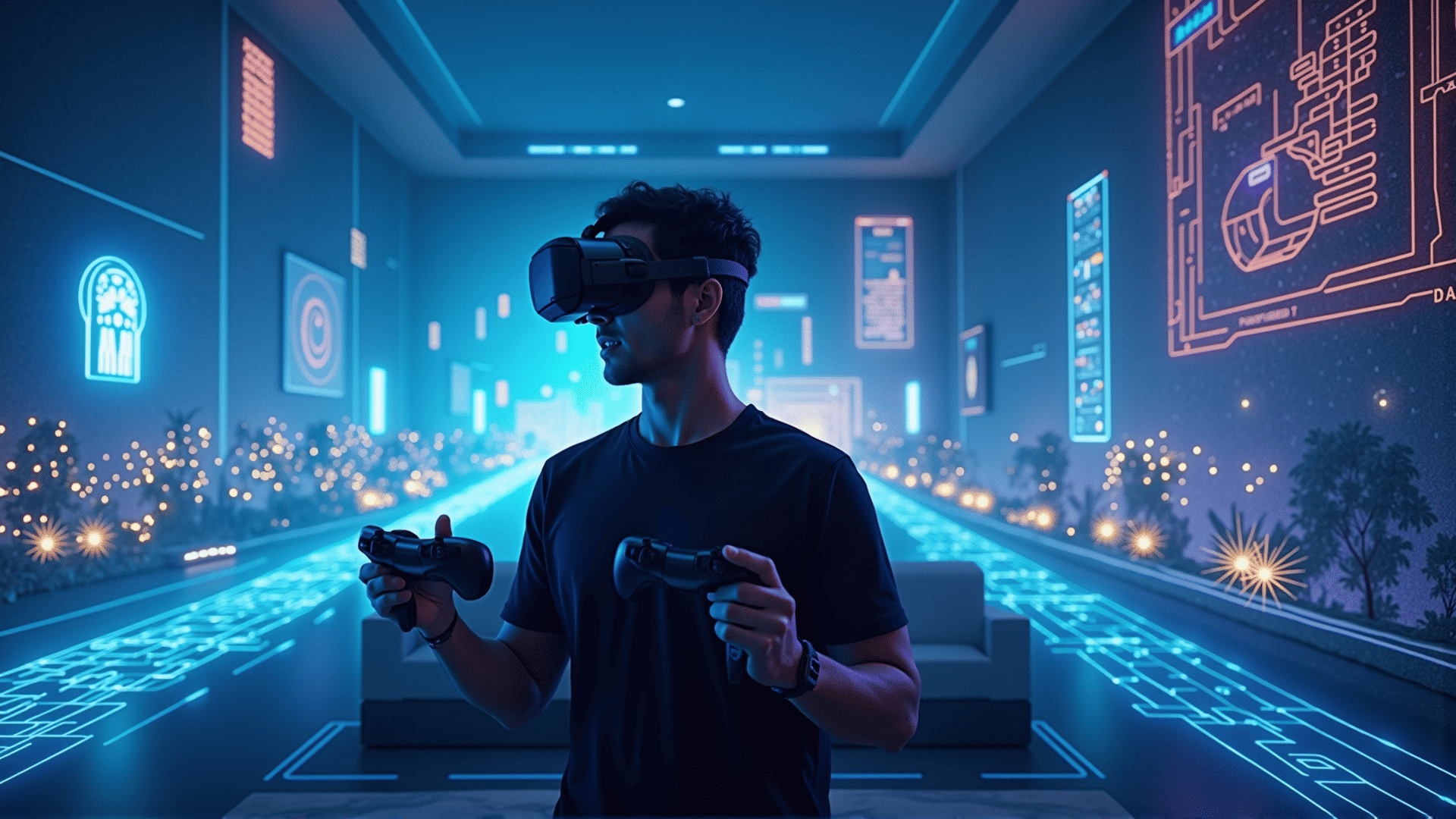Virtual reality (VR) is revolutionizing the gaming landscape across the globe, and the United Arab Emirates (UAE) is no exception. In recent years, the country has emerged as a vibrant market for VR technology, fostering an ecosystem that captivates both gamers and developers. This burgeoning sector offers a plethora of opportunities, reshaping the way gaming is perceived and experienced in this dynamic region.
The UAE is renowned for its rapid technological advancements and a population keen on embracing cutting-edge innovations. With its robust infrastructure and strong digital economy, the country provides an ideal environment for VR technology to thrive. Gaming enthusiasts in the UAE are increasingly drawn to the immersive worlds offered by VR, where the boundaries between reality and digital landscapes blur in unparalleled ways.
At the heart of VR’s appeal is its ability to offer an immersive experience like no other. Unlike traditional gaming setups, VR creates a sense of presence, enabling players to physically interact with their virtual environments. This heightened level of engagement transforms the gaming experience, allowing players to step into the shoes of their avatars and explore intricate landscapes, whether it's battling alien invaders or navigating complex puzzles.
The UAE's vibrant gaming community has quickly seized the opportunity presented by VR. Gaming arcades and entertainment centers across cities like Dubai and Abu Dhabi are incorporating VR experiences, offering everything from high-octane racing simulations to elaborate adventure quests. These venues have become popular social hubs, drawing not only gamers but also a wider audience eager to experience VR’s novelty first-hand.
For developers, the UAE presents a fertile ground for innovation in VR gaming. The demand for diverse content is growing, pushing creators to explore new genres and narrative techniques. This creative push is supported by initiatives from the UAE government, which is keen on nurturing a local tech ecosystem. By hosting events, providing grants, and launching incubator programs, the government is actively encouraging the development of VR projects that showcase regional talent.
One significant advantage for developers in the UAE is the availability of advanced technologies and resources. Collaborations with tech giants provide access to the latest VR hardware and software, simplifying the development process and reducing costs. Furthermore, the multicultural demographic of the UAE acts as a melting pot for creative ideas, inspiring developers to create content that resonates with a diverse audience.
The UAE’s strategic position as a global hub also opens up broader markets for VR developers. By leveraging the country's connectedness, developers can market their products beyond local borders, tapping into the growing VR markets in neighboring regions and globally.
Despite these opportunities, there are challenges VR developers must navigate. The high cost of VR equipment can be a barrier for widespread adoption; however, as technology advances and prices drop, accessibility is expected to improve. Additionally, developers must consider user comfort and the prevention of motion sickness, crucial for ensuring a seamless gaming experience.
Looking ahead, the future of VR in the UAE appears bright. As technology continues to evolve and integrate into more aspects of daily life, VR will become a staple in the gaming community, offering new dimensions of entertainment and social interaction. For both gamers and developers, the promise of VR lies not just in technological innovation but in the creation of shared experiences that transcend conventional gaming.
In conclusion, VR is not just a trend in the UAE; it is an exciting frontier with the potential to redefine the gaming landscape. By encouraging creativity, supporting development, and embracing new technological possibilities, the UAE stands poised to become a leader in the VR revolution, offering enriching possibilities for gamers and developers alike.
